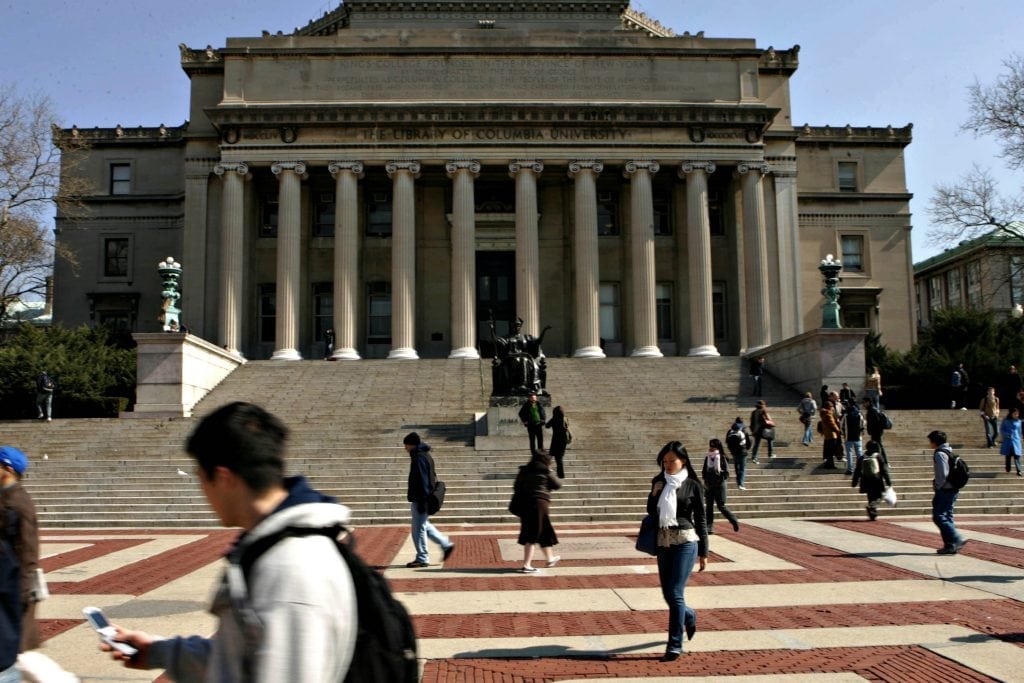Let’s explore some of the most interesting stories that have emerged from New York business schools this week.
CEOs Paid Less Than Peers More Likely to Engage in Layoffs, Research Finds – Binghamton SOM Blog
According to new Personnel Psychology research coauthored by Binghamton Assistant Professor of Strategy Scott Bentley, “CEOs who are paid less than their peers are four times more likely to engage in layoffs.”
In a recent Binghamton SOM Blog entry, Bentley writes, “In terms of strategic decisions that a CEO can make that could lead to higher pay, layoffs are one of the easiest to do. In a way, CEOs are just like any other type of employee. They are going to compare their pay to those around them. The difference is that the average employee can’t make strategic decisions for the company that influences their own pay. Executives can.”
Bentley adds, “Right around the point where CEOs are paid equal to their peers, the effect kind of goes away. We found that there’s this huge drop off in the likelihood of announcing layoffs once your pay is relatively the same as, or more than, your peers.”
“Payoffs for layoffs? An examination of CEO relative pay and firm performance surrounding layoff announcements” is available here. You can read Bentley’s full article here.
New Research Finds the More Connected You Feel to Your Future Self the Healthier Choices You Make – Columbia Business School
New Columbia Business School research published in the Journal of Experimental Psychology finds that “the more connected you feel to your future self, the more likely you are to adopt healthier habits today, tomorrow and thereafter.”
CBS Assistant Professor of Business Michael Slepian, on the school’s official website, says, “Our findings can help people circumvent the pitfalls of behavioral health changes. What the research shows is, if you can get people to think about their connection to their future selves, you can also get them to visualize the repeated health decisions they will need to make to improve their long-term health.”
According to the article, “it is possible that increasing future self-continuity would not only promote positive healthy behavior like exercising, but also prevent negative behaviors like overeating. The findings of this study could be applied to other behavioral health domains including skincare, such as sunscreen use and tanning salon use, dental care, such as regular flossing and routine dental visits, and road safety, such as texting while driving.”
The paper, “Future Self-Continuity Is Associated With Improved Health and Increases Exercise Behavior,” can be found here.
Philip Rauch’s Legacy Expands Through Family Foundation – Lehigh College of Business and Economics Blog
The Lehigh College of Business and Economics profiled Philip Rauch Jr. ’33, whose Rauch Foundation will “provide a generous grant to establish the Rauch Media and Communications Lab.”
Photo from the original Rauch Business Center groundbreaking on April 7, 1989 / Photo via lehigh.edu
Rauch Foundation President Nancy Rauch Douzinas writes of her uncle Philip’s commitment to Lehigh. “He was especially passionate about the power of clear communications as a means of working together effectively.”
“We know that he would be pleased that the Rauch Foundation will continue to support communications technology at Lehigh and ensure that the school keeps pace with the transformations driving business today.”
Dean Georgette C. Phillips explains it’s Lehigh’s responsibility to ensure that “today’s business professionals become more adept with multimedia and communication tools to communicate or introduce the next best idea.”
According to the school’s blog, “Students and faculty will use state-of-the-art technologies to develop presentations, videos, podcasts and other technologically based communications. Students will benefit from coaching and feedback in real-time with the learning laboratory.”
You can read the full article here.
